














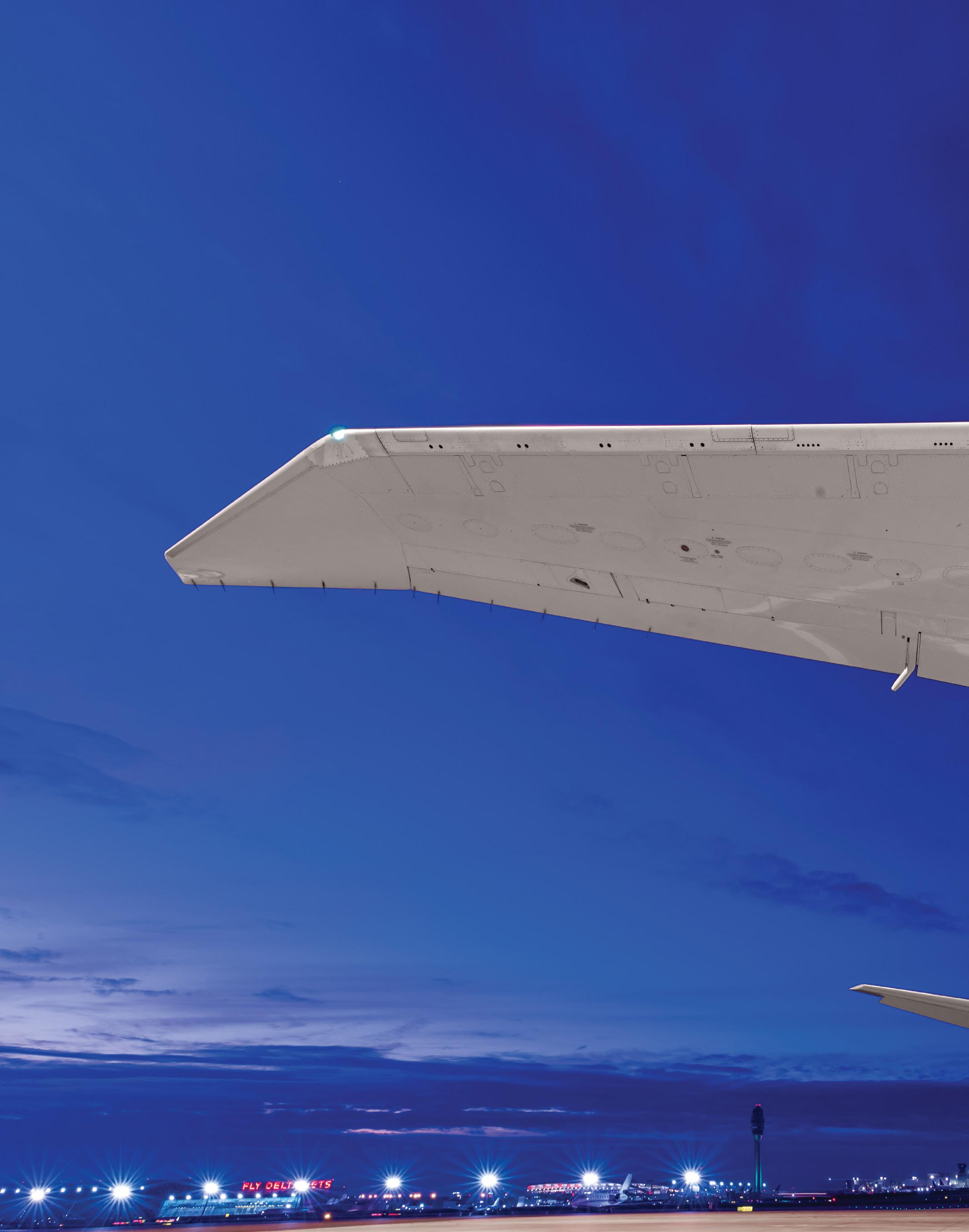
We speak to Rob Walpole, Vice President of Delta Cargo, about how the company reaches hundreds of destinations and carries thousands of shipments a day while offering first-class operational performance and customer service Writer: Lauren Kania | Project Manager: Scarlett Burke
It is undeniable that everything is seemingly moving faster these days, and shipping is no exception.
With the rapid globalization of today’s world, the safe and reliable transportation of goods worldwide is of paramount importance to the global economy.
The impact of the cargo and logistics industry has far-reaching international effects that influence each and every sector.
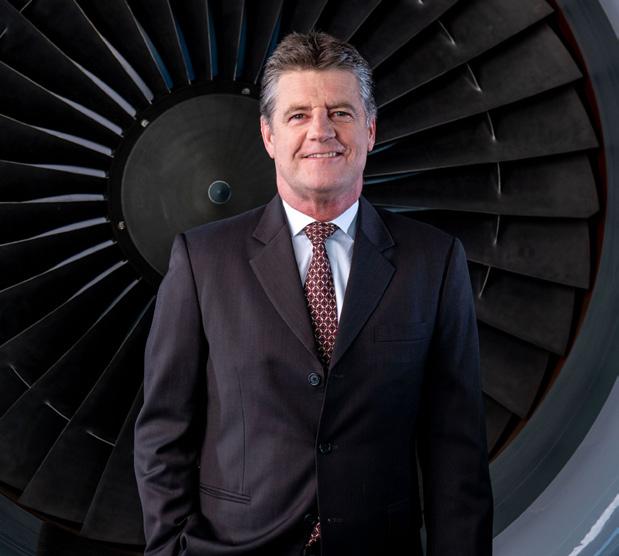
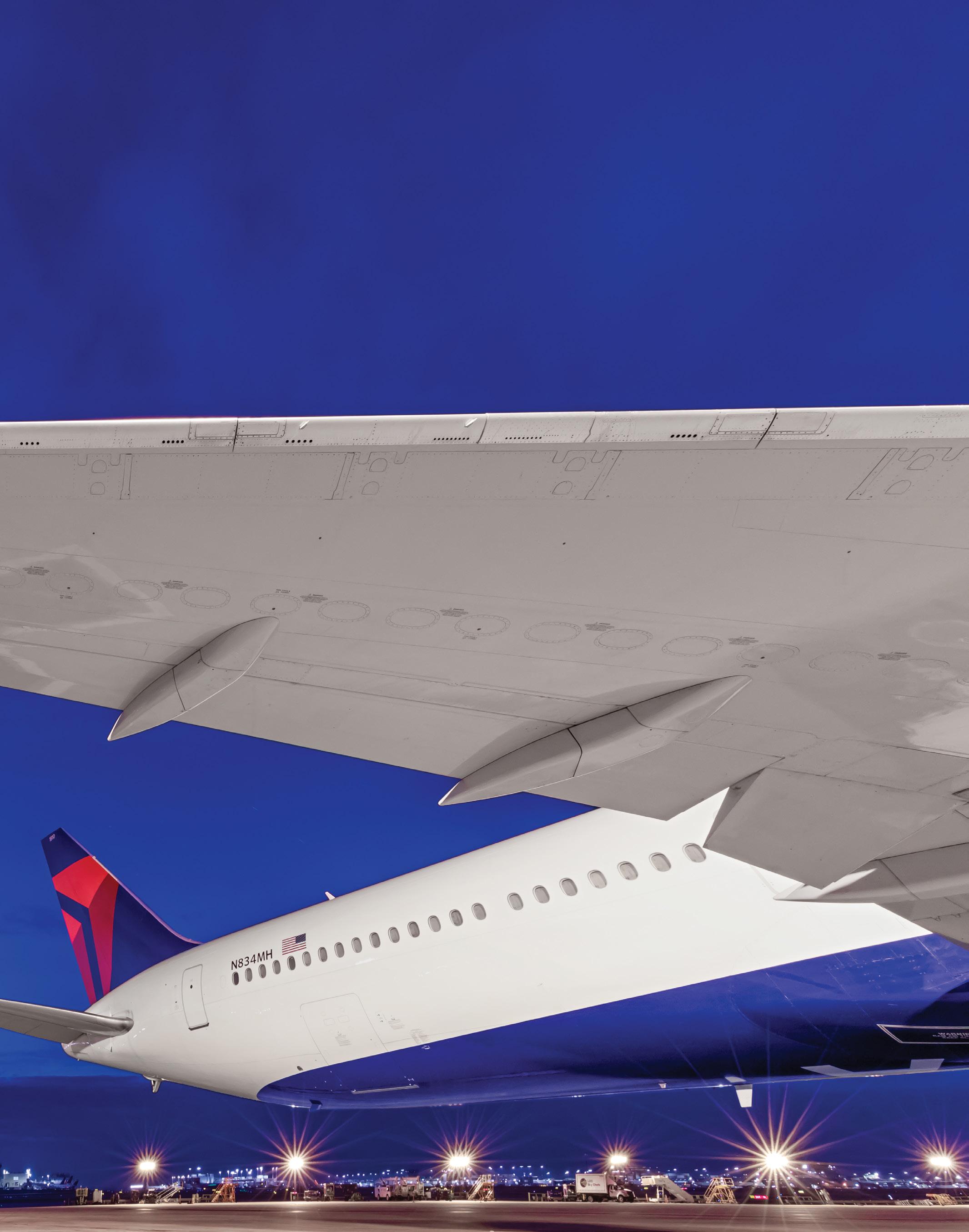
A longstanding player in this key industry is Delta Cargo, paving the way for innovation and growth alongside its time-tested reliability and exceptional standards for service excellence.
With a history that spans nearly a century, Delta Cargo has worked tirelessly to build a reputation for world-class handling, efficient operations, and speedy processing, regardless of the type of cargo.
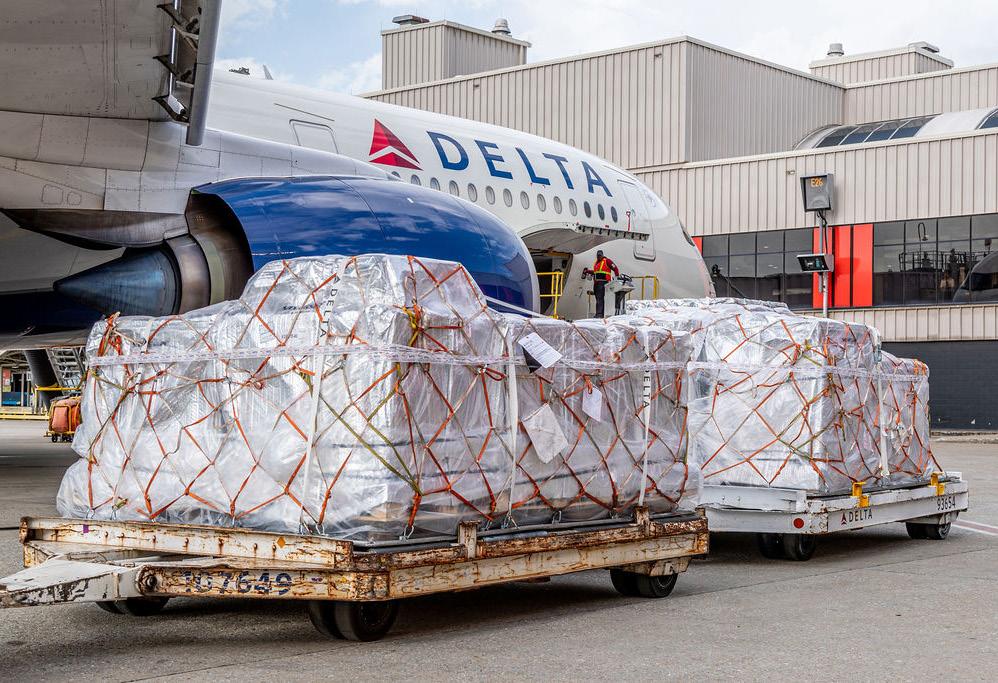
Aside from general cargo, the company offers tailored services to support unique needs, including:
TIME-SENSITIVE – DASH and Express product lines offer expedited shipping at various service levels. DASH Critical is often used to ship organs and critical medical products.
TEMPERATURE-SENSITIVE – Pharma and Fresh product lines offer specialty handling and temperature-controlled facilities for goods such as pharmaceuticals, seafood, and produce.
HIGH-VALUE AND VULNERABLE –The Safe product line offers special handling for goods requiring extra care and security, like artwork, antiques, or jewelry.
LIVE ANIMALS – Specially trained ground handlers offer personalized care for a range of commercial animal shipments, such as birds, live fish, and exotic animals.
The company provides top-notch cargo services and specialized handling for a variety of customer needs, transporting everything from fresh flowers to life-saving pharmaceuticals and organs for transplant via Delta Air Lines’ (Delta) extensive network.
With the air cargo industry cemented as a key component of the fast-paced global economy now more than ever, Rob Walpole, Vice President of Delta Cargo, delves into the ways the company continues to evolve its business, leveraging the great opportunities technological development can offer to progress the industry, while still remaining true to its origins by ensuring that its customers and the safety of their products are always at the forefront.
Walpole has been a part of the Delta Cargo team since 2019 and is
responsible for the growth, profitability, and operational performance of the industry-leading business.
A native of Australia, Walpole has an extensive and diverse experience within the supply chain industry. He spent the first part of his career in a variety of manufacturing and supply chain leadership roles in the downstream energy business at Exxon Mobil, spurring his interest in the supply chain industry. Located in Singapore for eight years, he led the Asia-Pacific logistics and supply chain business for BAX Global, and then DB Schenker. Walpole enjoyed an 11 year tenure with DB Schenker, with roles including CEO of Schenker, Inc., the $2.4 billion, 10,000-person US subsidiary of the company.
Prior to joining Delta Cargo, he was Senior Vice President of DP World, a Dubai-based global port operator, where he ran their $2 billion global logistics business.
Given this experience, Walpole is very familiar with the cyclical nature of the supply chain industry and the challenges this brings, and he possesses significant knowledge of its many intricacies.
“This is an incredibly exciting space to be in; there is always something changing and lots of room to adapt and innovate,” he opens.
Industry players are always trying to anticipate and react to the various global economic trends that have a widespread impact on supply chains and the actions that companies need to take in response. Currently, this includes an increase in manufacturing near-shoring and more concentration in Southeast Asia and other new markets.
Retail trends, such as the continued growth of the e-commerce sector and growing customer demand for two-day shipping, have required that the industry make changes in order to meet customer expectations.
Furthermore, like any industry, the air cargo business is highly impacted by technology developments, including an uptake in third-party platform usage, the need to deliver increased visibility and tracking to end-customers, and the continued need to simplify processes and improve efficiency.
As with many other global sectors, the COVID-19 pandemic was a challenging and unique time for those working in the supply chain business. Huge spikes in demand, manufacturing and supply disruptions across the globe, and the cratering of overall transportation capacity (particularly in the air freight sector) all led to shifts in the traditional modes of transport utilized by companies to ship their products.
“We played a huge part in the shipment of critical goods during the COVID-19 pandemic, including being the first US passenger airline to launch cargo-only flights during this turbulent period and one of the airlines
that supported the global vaccine distribution, transporting millions of vital doses worldwide,” he explains.
Demand and capacity have been rebalancing throughout 2023 after such a large disruption, and there have been logical impacts on the market.
“During the pandemic, we saw customers moving things via air freight that hadn’t typically moved via this mode – refrigerators, paper products, and similar commodities that would usually move via ocean freight. The logical consequence of inventory rebalance is that a more usual commodity split between air and ocean freight has been restored,” Walpole adds.
Additionally, some sectors that did not previously leverage ocean transport, such as the technology sector, have begun to move their goods via this mode. There is also still significant growth in freighter capacity in the market, which is expected to normalize come 2024.
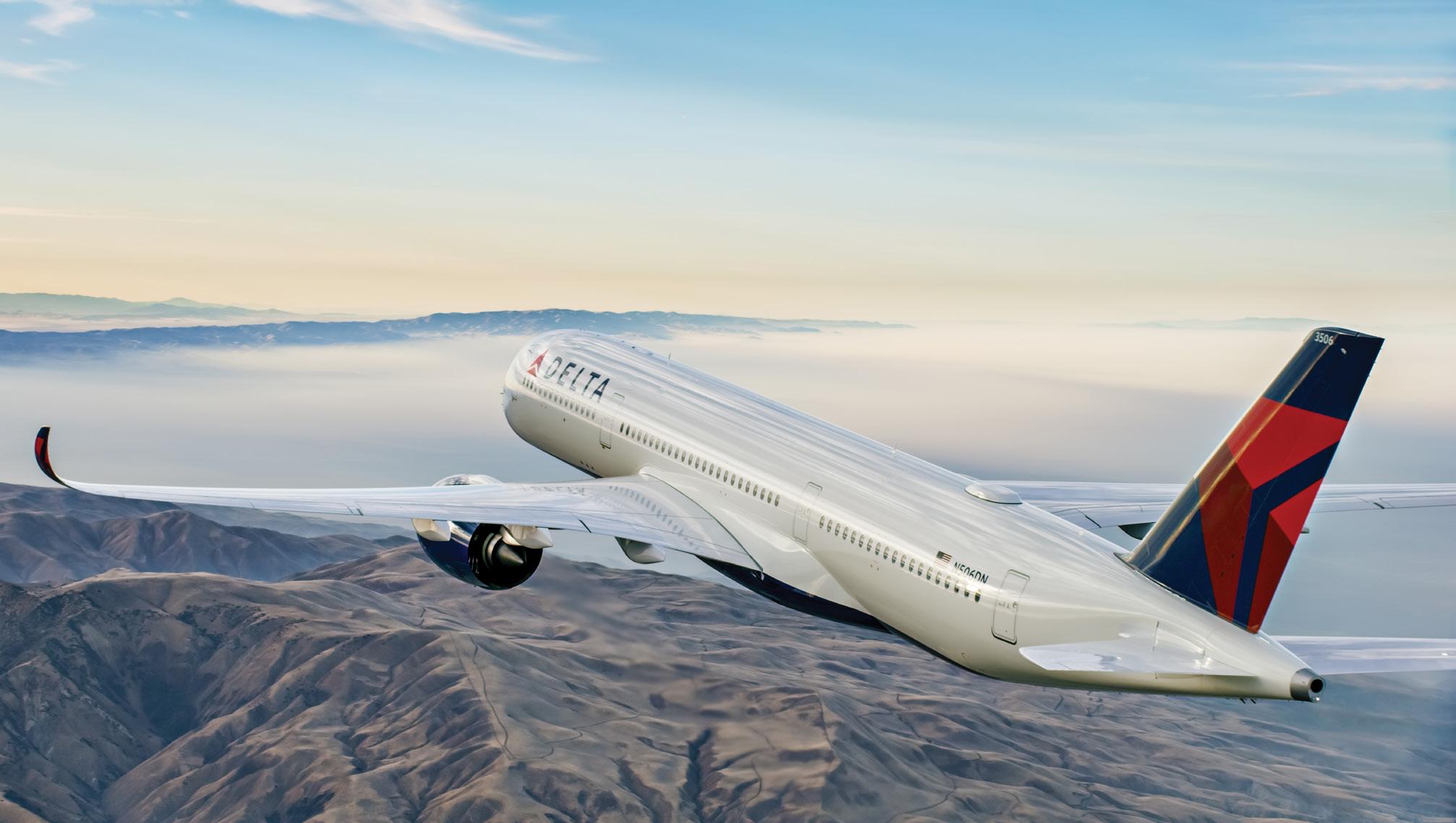
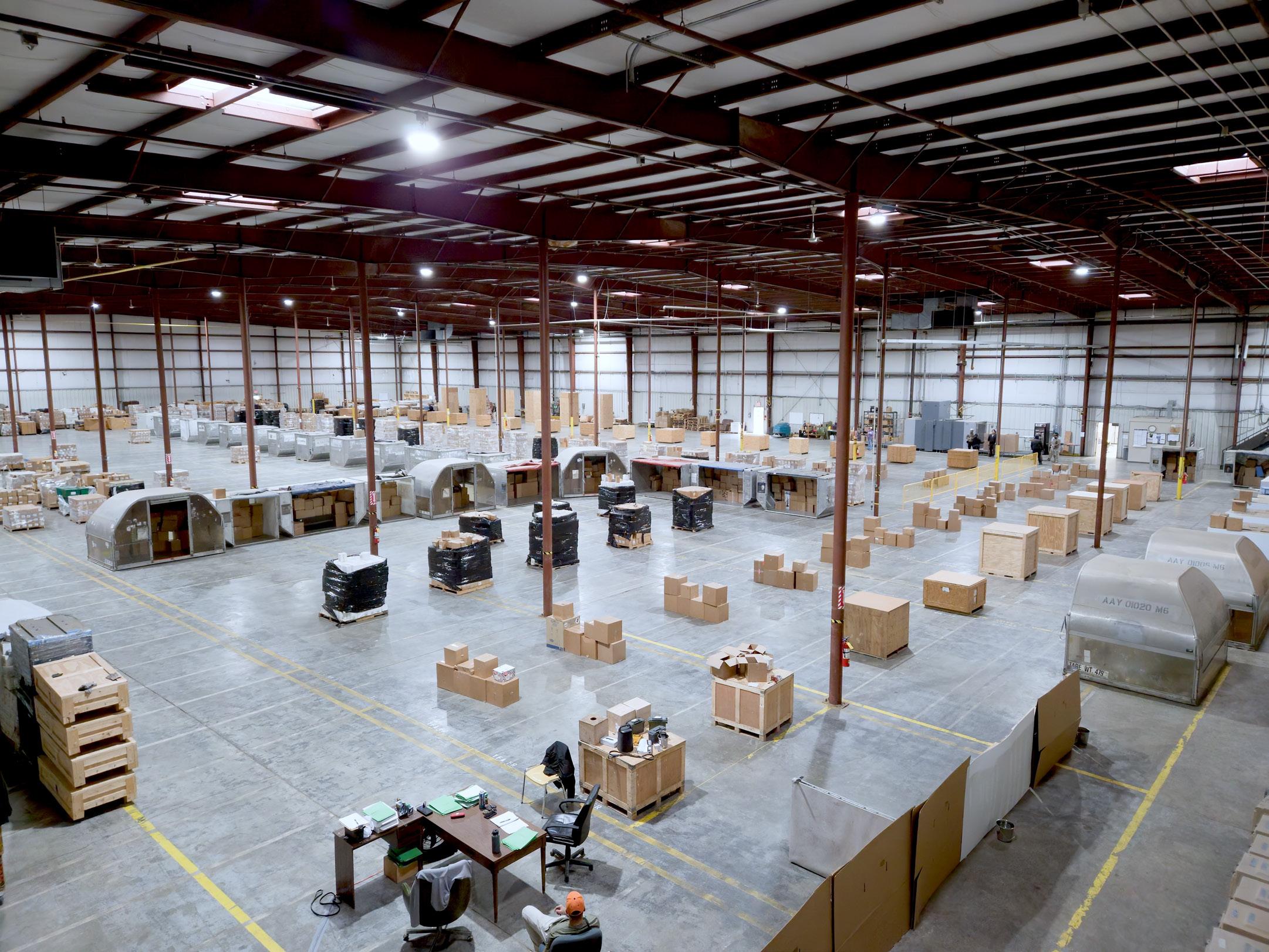
Domiciled at their 75,000 square foot corporate operations and training center in Opelika, AL, Global K9 Protection Group, LLC (GK9PG) was the first company approved by the Transportation Security Administration (TSA) in 2018 to begin providing Certified Cargo Screening Facility - K9 services (CCSF-K9) services. Since their initial TSA approval, GK9PG has grown to be the largest provider of 3PK9 services focused on providing a 100% compliant service while delivering industry leading economic value to their customers. GK9PG is a value based canine security company founded and managed by U.S. Military Veterans and Air Cargo Experts. GK9PG is on the forefront of delivering CCSF-K9 services under the guidelines of the TSA 3PK9 - C program, CCSP - K9 program, in alignment with TSA CCSP 49 CFR Part 1549.
GK9PG maintains a national footprint that includes over 400 TSA Certified CCSF - K9 teams nationwide covering 130+ clients across 35 states, 33 major airports,
and 387 facilities. This includes direct support to 14 Airlines, indirect support to 25 Airlines through their 14 Ground Handling Agent (GHA) clients, and 44 Freight Forwarders. GK9PG currently has 19 national locations with explosive bunkers to support training requirements with additional locations designated for external support and training.
Through their Aviation Services division, GK9PG - AS provides Authorized Representative (AR) services performed by their dualtrained CCSF - K9 handlers. Handlers are qualified as authorized representatives of their clients to conduct physical search, explosives trace detection (ETD), and X-ray screening alongside CCSF-K9 services. This unique layered approach allows K9 teams the ability to clear K9 alarms through secondary screening methods and perform many of the administrative functions of the regulated entity.
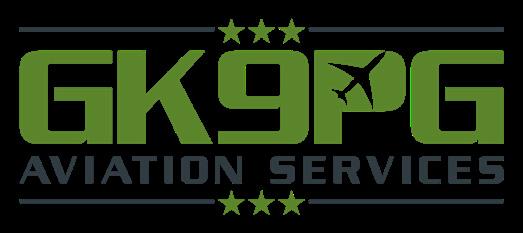
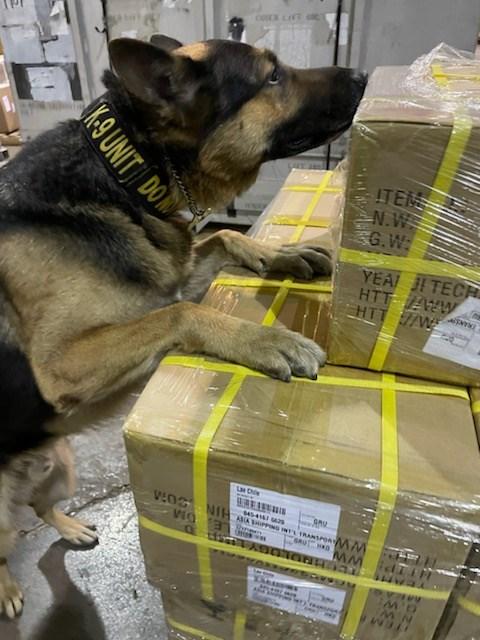


In their continued quest to provide solutions at the forefront of industry and client needs, GK9PG implemented lithium-ion battery screening services in 2023. It is widely known across the air cargo industry that lithium-ion batteries pose an explosive risk when not packaged or shipped properly, and as a result the FAA has warned against transporting pallets of lithium-ion batteries in the cargo holds of planes.
In addition to the primary explosive risk, a secondary issue associated with transportation of lithium-ion batteries is undeclared, undocumented, or counterfeit goods. Counterfeit lithium-ion batteries pose a greater risk due to being manufactured under unregulated conditions, using minimum standards, from inferior materials.
GK9PG utilizes a training methodology proven and validated by the U.S. Department of Defense, and only uses safe and commercially developed lithiumion training aids to ensure the safety of their K9 teams and that canines meet and exceed the strict criteria that must be met throughout their initial training and annual recertifications. GK9PG’s lithium-ion detection creates an additional layered approach in their canine detection solutions which can be implemented independently or alongside existing cargo screening services.
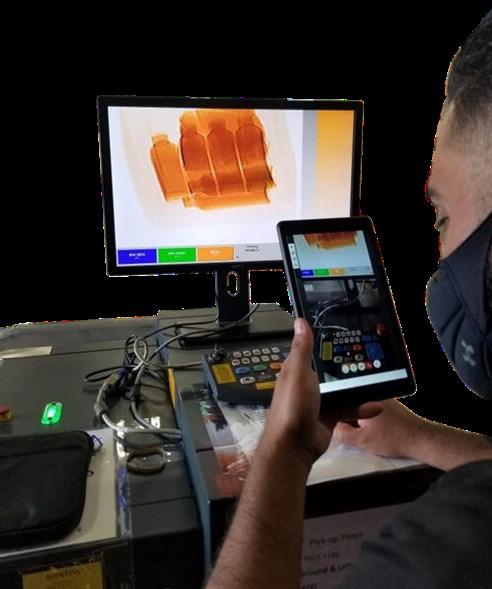
GK9PG’s 24/7/365 Remote Screener Support (RS2) service connects client’s remote cargo screeners with accomplished GK9PG bomb technicians comprised of current and former military and law enforcement trained personnel. Leveraging their Globalview platform, RS2 services provide immediate notification of an event/alarm while allowing users real-time visibility into the client’s screening facility during the event, allowing for quick expert decisions to be made at the onset of a critical incident helping prevent unnecessary evacuations due to screeners misidentifying or misinterpreting an unusual or suspect item.
2018
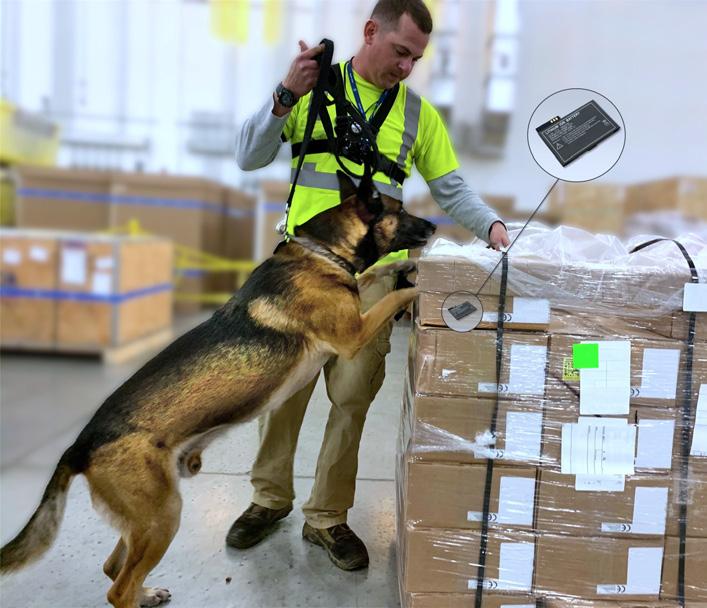
In addition to CCSF-K9 services, GK9PG also operates a Commercial Services division delivering specialized Dynamic K9s for detecting and responding to the presence of explosives and firearms in physical environments. Their success is a direct result of bringing together world -class canine professionals, explosives subject matter experts, and venue security specialists creating a united effort that delivers best-inclass handlers and canines to meet industry demands. With a focus on public safety, GK9PG is actively contracted with the most iconic brands across the parks & attractions, professional sports, entertainment, transportation, and maritime industries.
In the wake of the Uvalde, Texas school tragedy, GK9PG embarked on a mission to improve school safety through their Paws on Patrol School Safety Program. Developed in partnership with Auburn High School in Auburn, Alabama and John Horn High School in Mesquite, Texas, the program quickly spurred a deployment in schools across the country. The success of Paws on Patrol led to the implementation of parallel services in hospitals nationwide called Paws+.
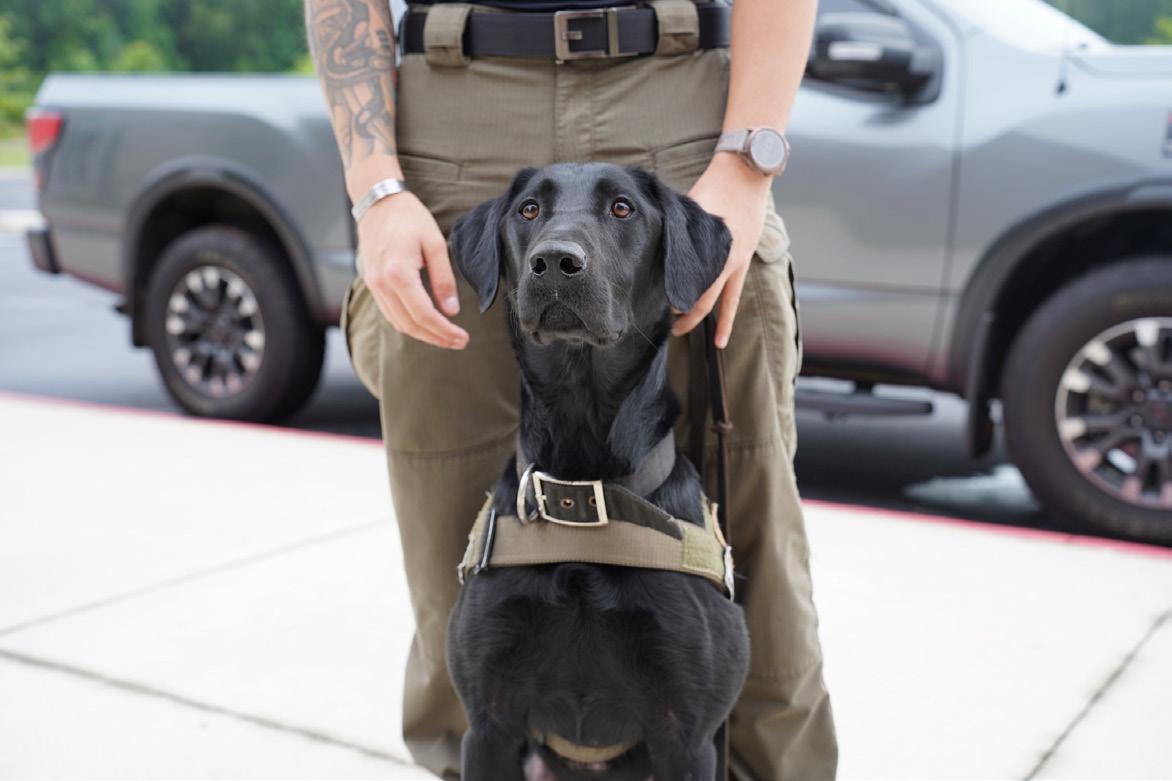

In the dynamic world of air cargo logistics, partnerships matter. They are the lifelines that connect global enterprises with the world, enabling businesses to transport goods seamlessly, efficiently, and with unwavering reliability. At the heart of this intricate web of connections stands a remarkable alliance – the partnership between MCH and Delta Cargo.
MCH, as the General Sales and Service Agent (GSSA) for Delta Cargo in Australia and New Zealand, represents a partnership that’s more than just a business affiliation. It’s a strategic collaboration founded on shared values, common goals, and a commitment to delivering excellence in cargo solutions.
Delta Cargo, a renowned leader in the global air cargo industry, has built a reputation for its extensive international network. With connections that span six continents, Delta Cargo is an undisputed heavyweight in the field. This extensive global reach is seamlessly complemented by MCH’s local expertise. As a trusted GSSA, MCH intimately understands the unique intricacies of the Australian and
New Zealand market. This partnership ensures that clients receive the best of both worlds – a global network and insights that cater to their specific needs in Australia and New Zealand.
The partnership is underpinned by a shared commitment to reliability and punctuality. Time-sensitive cargo demands a level of precision and dependability that is second to none, and MCH and Delta Cargo are dedicated to meeting this challenge head-on. Together, they offer a cargo experience characterised by timeliness and trustworthiness, ensuring that cargo arrives at its destination as scheduled.


The safety and security of cargo are paramount concerns for both MCH and Delta Cargo. Robust security measures and SOPs are in place in line with TSA requirements to safeguard every shipment. This unwavering focus on cargo security provides peace of mind to clients, knowing their goods are in the most secure of hands.
The true hallmark of this partnership is a commitment to client satisfaction. The dedicated team of MCH stands ready to assist clients, providing personalized service to cater to their unique cargo requirements. It is a partnership that values the strength of relationships, building connections with clients that endure.
The partnership between MCH and Delta Cargo is more than just a business
partnership; it is a promise of excellence, a pledge of reliability, and a commitment to delivering world-class cargo solutions. This partnership is your gateway to a world of possibilities in air cargo logistics. MCH and Delta Cargo are here to empower your cargo journey, connecting you with the world and ensuring your goods reach their destination with efficiency and care. In the realm of air cargo logistics, this partnership is where success takes flight. MCH and Delta Cargo: Your Trusted Allies in the World of Cargo Excellence.
+61 3 8318 5100
info@mchholding.com.au
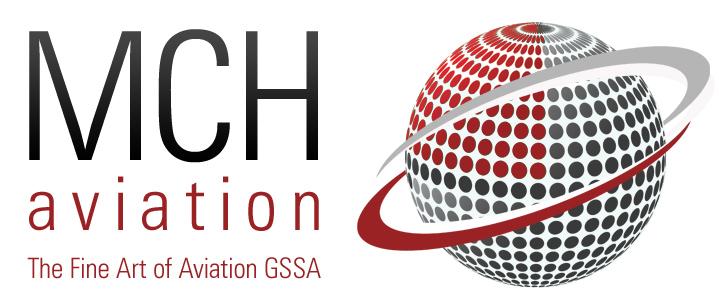

With the rebound of air passenger traffic, the traveler load factors are at historic highs, making the management of aircraft belly space more complex than ever, and Delta Cargo is facing the challenge head-on.
Delta expects to serve nearly 200 million travelers this year, operating more than 4,000 daily flights to more than 280 destinations on six continents (as of September 2023).
Within the broader Delta enterprise, the Delta Cargo division transports various goods around the world to support the global supply chains of its customers.
Delta Cargo is known in the industry as a belly operator, which means it does not operate a dedicated freighter network of flights, but instead leverages the space available in the belly space of Delta’s passenger aircraft. Prior to the pandemic, nearly half of all international air cargo
“EVERYTHING WE DO IS CENTERED AROUND THE GOAL OF BEING THE BEST-IN-CLASS CARRIER FOR OUR CUSTOMERS AND OUR STAKEHOLDERS. WE ARE CONTINUALLY INVESTING ACROSS DIFFERENT AREAS OF OUR BUSINESS TO IMPROVE AND EXPAND ON OUR CAPABILITIES TO BETTER SERVE OUR CUSTOMERS AND BE THEIR SHIPPING PARTNER OF CHOICE”
– ROB WALPOLE, VICE PRESIDENT, DELTA CARGO
by weight moved via the belly of passenger planes, according to IATA. This business model brings incremental revenue to Delta’s bottom line without additional costs of operating separate flights.
“Cargo is an important piece of Delta’s long-term revenue diversification strategy, and the company is focused on investing and
growing in this space,” comments Walpole.
The dedicated cargo network planning team works hand-inhand with their counterparts on the passenger side to ensure that decisions on the company’s network and fleet strategy take into consideration the needs of cargo customers and market trends.
This multi-faceted approach requires significant cross-collaboration between the company’s divisions to ensure strategic decisions support the airline’s business as a whole.
To provide access to an even more expansive network for its customers, Delta Cargo also facilitates line haul trucking to and from its hubs and other stations in its network, using both exclusive-use vehicles (EUVs) and less-than-truckload (LTL) options, providing customers with more options to move their goods more efficiently around the world.
Delta Cargo started as a domestic mail carrier with the first mail shipment in 1934. It then expanded
to regularly scheduled air cargo services in 1946, with the first items shipped being freshly picked mushrooms.
Today, Delta Cargo is made up of 2,100 people worldwide within the broader Delta enterprise. On average, it transports 2.2 billion cargo ton-miles annually, and in 2022, it carried an average of over 3,000 shipments per day across Delta’s global network.
The company serves three primary types of customers, with freight forwarders making up the largest segment. These logistics companies help manage supply chain operations for their business-to-business (B2B) clients and facilitate the movement of nearly any kind of client shipment all over the world via various modes
of transport. Specialty freight forwarders move goods for specific industries, like equipment for professional sports games, concerts, and other productions. Traditional parcel shipping companies also rely on Delta Cargo to move larger freight and time-critical goods.
Additionally, there are direct customers, many of whom who use Delta Cargo’s specialty product lines to ship items that require special handling and care, such as pharmaceuticals, fresh produce, live animals, or high-value goods such as jewelry or diamonds.
The final main customer segment is air mail, which includes traditional postal services who utilize Delta Cargo to deliver letters and packages around the world.

In the fast-paced world of logistics, where efficiency is the key to success, one often overlooked obstacle hampers the seamless flow of operations— the reconciliation of payments. In an industry driven by precision and timing, the current state of reconciliations acts as a bottleneck, slowing down the entire logistics workflow. Astonishingly, nearly 40 percent of invoices in the logistics sector contain errors, a statistic that should not be taken lightly. These errors, ranging from incorrect quantities to misapplied fees, can result in delays in accounts payable and receivable, stretching from 30 to a staggering 120 days. The traditional approach to payment reconciliation involves a manual and timeconsuming process that relies heavily on human scrutiny. The complexity of logistics transactions, involving multiple parties, diverse services, and a plethora of invoices, makes it susceptible to errors. As a result, disputes and discrepancies often lead to extended payment cycles, strained relationships between shippers and carriers, and an overall inefficiency that trickles down the entire supply chain.
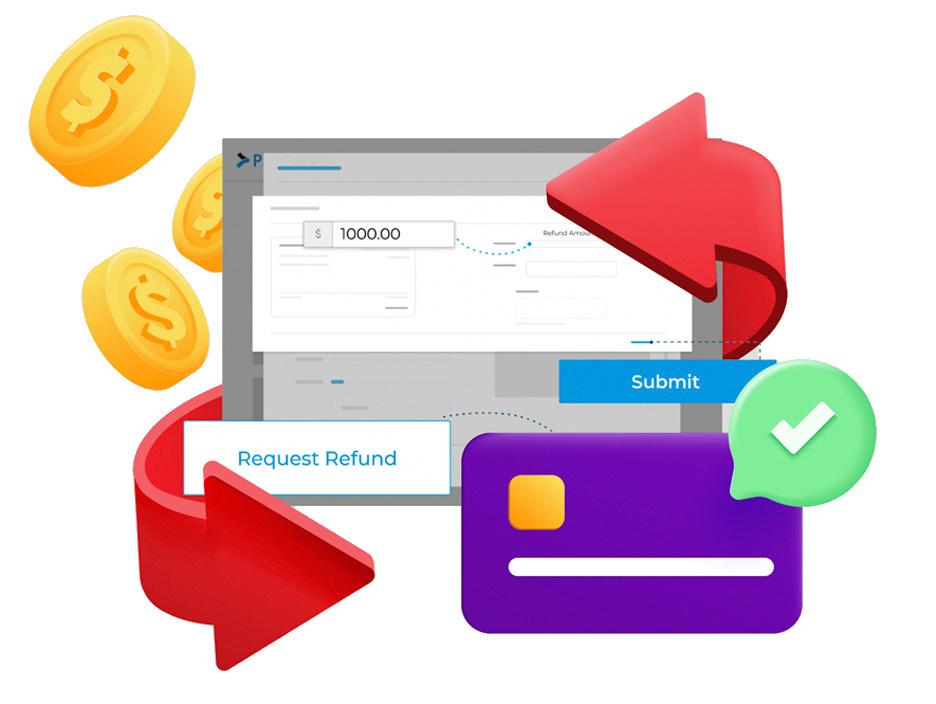
enhancing transparency, efficiency, and trust among all stakeholders.
One of the primary challenges faced by the logistics industry today is the sheer volume and complexity of transactions. As goods traverse the globe, they leave behind a trail of invoices, each representing a crucial step in the supply chain. The implementation of automated invoice systems equipped with AI technology holds the key to unraveling this complexity. These intelligent systems can swiftly scan, analyze, and cross-reference invoices against predefined parameters, instantly flagging errors and discrepancies. Real-time reconciliation is not merely a theoretical concept; it is a tangible solution to a problem that has long plagued the logistics industry. The integration of AI into the invoicing process enables the system to learn from historical data, continually improving its accuracy in identifying potential errors. This self-learning capability reduces the likelihood of repetitive errors, allowing logistics companies to operate with increased reliability.
The future of logistics, however, holds the promise of a revolutionary transformation through the implementation of real-time reconciliation powered by cutting-edge technology. Imagine a logistics landscape where automated invoice systems and artificial intelligence (AI) collaborate seamlessly to identify errors in real-time, streamlining communication and dispute resolution between shippers and carriers. This shift from a reactive to a proactive approach is poised to redefine the industry,
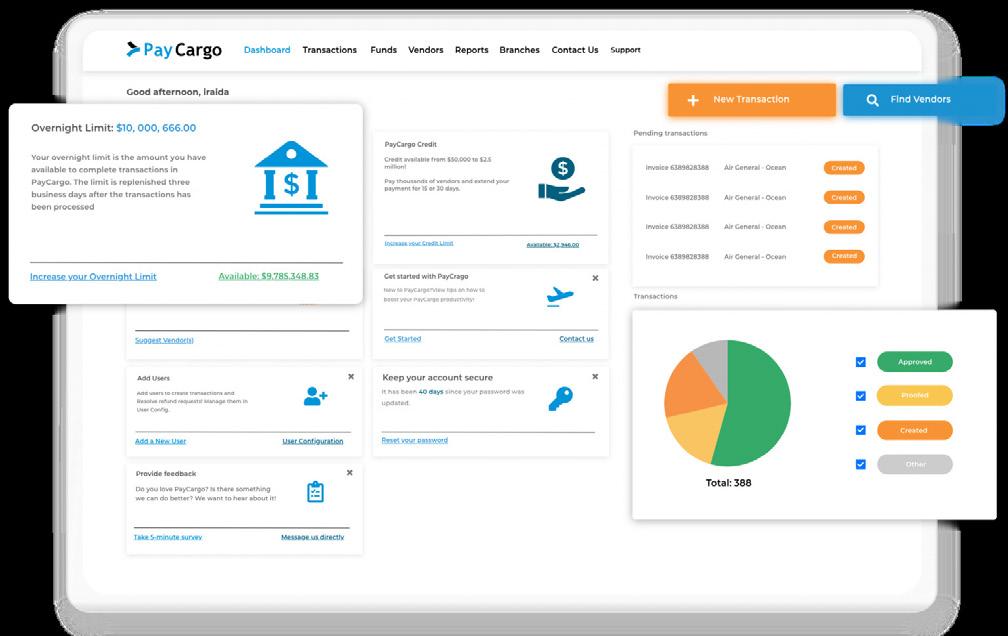
Furthermore, the advent of realtime reconciliation will redefine the communication dynamics between shippers and carriers. Currently, dispute resolution can take days, if not weeks, as parties engage in back-and-forth exchanges of emails and phone calls. With the implementation of automated systems, disputes can be identified and settled within hours, if not minutes. The result is a logistics ecosystem that operates with unprecedented agility, where disputes are addressed swiftly, preventing any significant disruption to the supply chain.
The impact of real-time reconciliation extends beyond the immediate benefits of error reduction and faster dispute resolution. Shippers and carriers will experience improved cash flow, as payments are processed without unnecessary delays. This, in turn, will strengthen business relationships, as trust is built on the foundation of timely and accurate financial transactions.

The implementation of such advanced technologies will also enable logistics companies to allocate resources more efficiently. The time and effort currently invested in manual reconciliation processes can be redirected towards strategic planning, optimization of routes, and overall improvement of operational efficiency. Realtime reconciliation is not just a solution to a problem; it is a catalyst for positive change throughout the logistics industry.
As we embrace the era of real-time reconciliation, it is essential for logistics companies to invest in technology and adapt to this paradigm shift. The benefits of increased efficiency, reduced errors, and enhanced collaboration between shippers and carriers are too significant to ignore. The future of logistics lies in the hands of those willing to embrace innovation and leverage the power of real-time reconciliation to propel their operations into a new era of excellence.

In conclusion, the next forefront in logistics is not a new mode of transportation or a revolutionary packaging solution; it is the often-underestimated power of real-time payment reconciliation. By harnessing the capabilities of automated invoice systems and AI technology, the logistics industry has the potential to overcome the challenges posed by manual reconciliation processes. The future promises a logistics landscape where errors are minimized, disputes are settled swiftly, and the entire supply chain operates with unprecedented efficiency. It is time for the industry to embrace this transformative shift and unlock the true potential of real-time reconciliation.
Learn more about how PayCargo and its Premium Integrations streamlining your Accounts Receivable and Payables for maximum efficiency so that your business can focus on what matters most.
+1 (888) 250-7778
support@paycargo.com
paycargo.com
It is of significant importance to Delta Cargo that it enlists the expertise needed to transport every type of cargo in a best-in-class manner. As a prime example, the team in charge of managing the transportation of live animals includes an experienced veterinarian. With this extensive knowledge of the needs and intricacies of transporting live animals, the company is able to achieve daunting tasks such as safely moving large quantities of live baby chicks across the country.
Delta Cargo is the first US global passenger carrier to receive IATA’s Center of Excellence for Independent Validators (CEIV) Pharma certification, a high distinction of pharmaceutical handling standards that is critical for operators aiming to serve the sensitive needs of the pharmaceutical industry.
“We know that sometimes the details matter most, and that the difference in a few degrees can save
lives when it comes to delivering temperature-sensitive shipments. That’s why we invest in compliance with the highest industry standards to safeguard product integrity,” Walpole notes.
Delta Cargo customers already benefit from Delta’s superb operational reliability – the company was recognized as North America’s most on-time airline in 2022, a position it has held over the course of many years in the recent past.
“A key priority for us has been to match Delta’s worldclass performance and the high quality service provided to our passengers with the same level of service predictability for our cargo customers.” says Walpole. “Our operational reliability and customer service are the foundation of our reputation and success.”
The company is moving the needle when it comes to on-time delivery performance, ensuring reliable freight delivery across its global network.
This is exemplified by Delta Cargo’s improvements in its on-time performance metrics. For example, the company currently boasts the highest rating of any belly carrier airline year-to-date according to IATA’s standard industry measure (NFD) and has improved its performance over the prior year.
With all the moving pieces involved in the supply chain, things don’t always go exactly as planned. When issues arise, Delta Cargo is committed to having the best proactive resolution processes in the industry.
“The most critical thing our customers want to know when something doesn’t go as planned is: ‘what do we do, and how do we communicate back to our own customers?’” Walpole notes. “We prioritize solving any issues that arise,


NETWORK – Delta Cargo has over 200 cargo stations worldwide, including 11 domestic hub stations and two key international stations managed by Delta partners. On the ground, Delta Cargo also offers approximately 200 scheduled trucks on average per day, connecting nearly 300 city-pairs around the world.
FLEET – Delta continues to receive new A350-900s and A330-900neos, as these aircraft are becoming the mainstays of the company’s widebody fleet due to their high capability and fuel efficiency. Delta Cargo works incredibly closely with the fleet team, as well as the widebody passenger planning group, to ensure both sides are aligned on ordering, configuring, and deploying the right aircraft on the right routes at the right times.
as exemplified by our investments in dedicated in-house support teams, as well as in technology that enables us to anticipate potential service failures, notify our customers, and more quickly resolve issues. This is one of the most important parts of providing quality customer service.”
The company utilizes its Cargo Control Center (CCC), which monitors
the heartbeat of Delta Cargo from its Atlanta headquarters, providing a rapid response to any anticipated or confirmed irregular operations and informing other supporting operational teams of actions needed to remedy any issues.
Delta Cargo has established proactive monitoring for premium products to enable quick service
recovery for the most time-sensitive and high-value shipments. Its Customer Service Center, which works closely with the CCC, serves as the primary conduit of communication with customers, both assisting in the creation of new bookings as well as servicing existing ones. Additionally, a Customer Escalation Team was created to further improve the speed to resolution when issues arise, working directly with operational teams to resolve reported problems and monitoring affected shipments until delivery.
“Ultimately, we are focused on being the easiest partner for our customers to do business with,” comments Walpole. “We’ve established mechanisms to get direct feedback from customers, and more importantly, act upon it.”
To further support its operations with both internal and external parties, the company relies on its Delta Logistics Control Center

(DLCC), which serves as a one-stop transportation shop, centralizing and streamlining the movement of various goods and supplies.
This unit of the company plays an important role in connecting and collaborating across teams to ensure efficient operations, working to minimize service issues, provide faster processing times by establishing routing rules, and constantly monitor the market to ensure compliance.
The air cargo market is a complex business, with distinct customers and needs across the many markets in which Delta Cargo operates. Strong relationships with partner airlines and suppliers provide the company with local knowledge and expertise in key global markets.
“WE PRIDE OURSELVES IN BEING EXPERTS IN EVERY TYPE OF CARGO WE MOVE”– ROB WALPOLE, VICE PRESIDENT, DELTA CARGO
“Business partners are critical to our success, not only to support our growth and innovation, but also to enable us to run our own logistics smoothly,” notes Walpole.
“We have a critical network of partners supporting our operations and sales processes across the globe, who are a key extension of the Delta Cargo network and brand,” he says. This network includes ground handling agents (GHAs) who handle front-line operations at smaller cargo stations and cargo sales agents (CSAs) who represent Delta Cargo in competitive international markets.
The company also utilizes its extensive network of airline partnerships and alliances to offer customers access to an even broader global network.
“Our alliance partners are some of the best cargo airlines in the world,” comments Walpole.
“Through Delta Cargo’s coordination with each of these partners, we have worked to create a more seamless experience for our customers, regardless of who is operating the flight or handling the goods on the ground, in an effort to save customers time and effort,” he continues.


With over 30 years of experience, ERMC Aviation is a trusted name in the aviation maintenance industry. Our team of highly skilled staff are committed to providing the highest standards of support, safety, and professionalism.
Safety is our top priority. Our employees undergo continuous training to ensure every operation is secure and comfortable for all those involved.
We understand that every customer is unique. That’s why we offer personalized services to cater to your specific requirements and operational needs.
We pride ourselves on being the most efficient and convenient service provider. We work in tandem with our customers to ensure projects are completed on time and on budget.
Quality doesn’t have to break the bank. We offer competitive pricing options, ensuring that you get the best value for your operational needs. ERMC prides itself on providing the highest quality service at a competitive price. We look forward to developing partnerships to ensure the expectations of our customers are exceeded.
Contact us for all of your baggage handling system, passenger boarding bridge or facility maintenance needs.
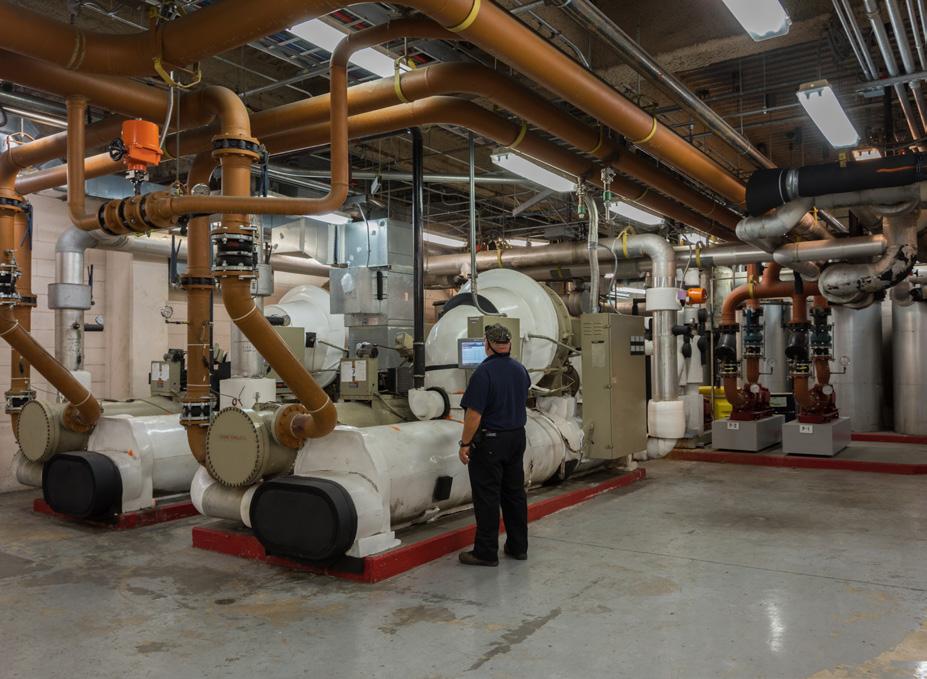

Enabled by its Blue Skies alliance with Air France-KLM and Virgin Atlantic, Delta operated its largestever transatlantic schedule in the summer of 2023, with additional frequencies in key cargo markets like Paris and London. In the coming year, the company is anticipating another record transatlantic schedule with significant additions in Paris, Rome, Madrid, Milan, Dublin, and London.
Additionally, the Delta and Korean Air joint venture provides service from 16 different points in the US to Incheon and Haneda across approximately 23 daily flights, with Korean Airlines connecting to an additional 39 points. This allows Delta
• Growing Delta Cargo’s capabilities in the New York City market to better serve global pharmaceutical customers, both by investing in state-of-the-art facilities and working with partners to strengthen its global reach.
• The introduction of a new online shopping and booking platform in the US market, which allows customers to obtain an instant quote of the best rate available and view all product options side-by-side in the shopping display. This new platform improves transparency and ease-of-use for customers, and creates a more seamless booking experience.
• Continuous ongoing enhancements to the customer service model, including the introduction of special desks focused on servicing specific needs, such as a dedicated pharmaceutical desk.

Cargo to offer customers capacity to destinations across Asia that it otherwise would not be able to serve on its own.
In North America, the Delta and Aeromexico joint cooperation agreement opens up the ability to provide service between the US and Mexico with 71 daily flights, with Aeromexico connecting to an additional 49 points within Mexico from its hub in Mexico City. With the growing trend toward nearshoring and the relocation of manufacturing operations to North America, this alliance offers more seamless solutions to connect these companies
with their end customers.
These airline partnerships provide Delta Cargo with the ability to find win-win solutions for customers and improve the ease of doing business with the airline. For example, the company recently enhanced its partnership with Aeromexico to enable seamless connections for pharmaceutical shipments via the John F. Kennedy International Aiport (JFK) and Mexico City International Airport (MEX) route. This new and promising opportunity leverages the expertise and capabilities of both airlines, including state-ofthe-art coolers at both hubs, and
ultimately expands Delta Cargo’s pharmaceutical network to better serve customers.
“We believe that social responsibility lies at the intersection of our values and expertise, guiding our work in our local communities,” says Walpole.
As such, Delta has committed to returning one percent of the company’s annual profits to the communities where it operates as a way to give back and make a difference. The company also offers many opportunities for its employees to volunteer their time, and Delta is the largest corporate blood drive sponsor for the Red Cross in the US.
Along with giving back to the local community, Delta Cargo has made impressive strides when it comes to sustainability.
“Delta has been very vocal about our focus on sustainability and has committed to working toward a more sustainable future of travel through various efforts, including investing heavily in the supply of sustainable aviation fuel,” he explains.
One of the primary ways in which Delta Cargo is contributing towards these sustainability efforts is through
offers a full range of aviation services including: ground handling, passenger services, cargo warehousing, mail handling, cargo aircraft handling and GSE fueling.
Operating in over 200,000 sq./ft. of warehousing with a staff of 1,600+ full-/part-time employees, averaging 1.1 million hours each year, across 21 cities in the U.S. and Canada.
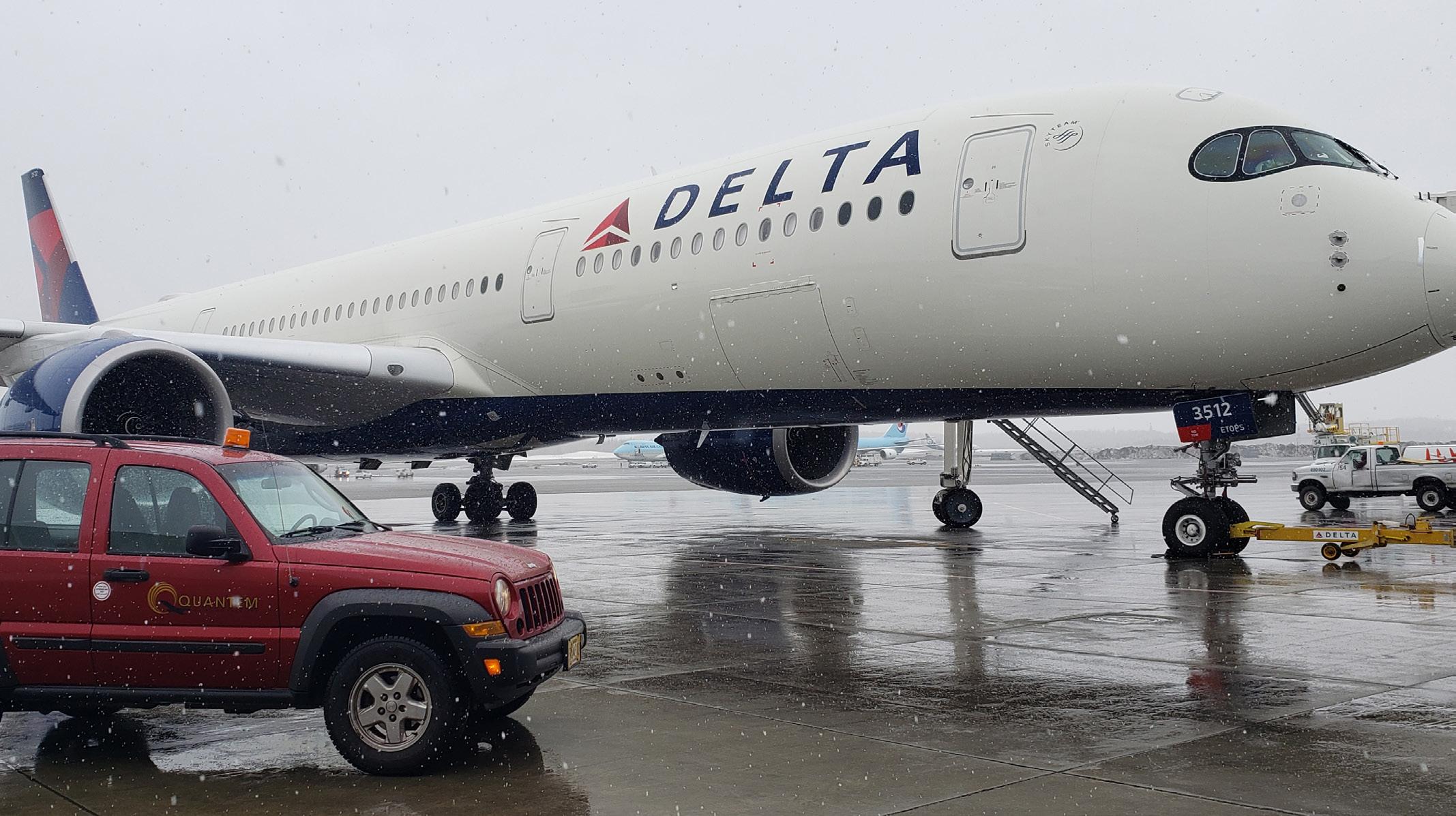

“OUR DELTA CARGO TEAMS ARE COMMITTED TO EXCELLENCE IN EVERYTHING THAT THEY DO AND EMPOWERED TO FIND WAYS TO CONTINUOUSLY IMPROVE OUR BUSINESS”
– ROB WALPOLE, VICE PRESIDENT, DELTA CARGO
promoting Sustainable Aviation Fuel (SAF), a biofuel used to power aircraft that has a smaller carbon footprint than conventional jet fuel. SAF production is a renewable process, and currently, SAF can reduce life cycle emissions by up to 80 percent compared to fossil fuels, supporting a more promising future for transportation.
To support the company’s efforts to increase SAF supply and ultimately achieve the goal of replacing 10 percent of jet fuel with SAF by the end of 2030, Delta Cargo partners with its customers on SAF production deals, which in turn help those customers in meeting their sustainability goals as well.
“This work is not only good for the planet – it’s a business imperative. The people we care about, care about sustainability,” says Walpole.
“To date, the SAF agreements that Delta Cargo has signed with our clients and partners include
commitments totaling approximately two million gallons,” he continues.
In addition to SAF, the company has been focused on other green initiatives, including utilizing BioNatur stretch film and pallet covers, which are 100 percent biodegradable and significantly reduce plastic usage. Since making the switch to BioNatur in 2021, Delta Cargo has prevented the equivalent of 18 million 16-ounce plastic bottles from ending up in landfills . Zero-emission electric ground support equipment (e-GSE) vehicles are also used in many of Delta Cargo’s warehouse facilities, which boast zero operating emissions, improved air quality, and reduced operating and maintenance costs.
“While it can be easy to focus on the investments we make to improve our capabilities and better serve our customers, it’s important to emphasize that the single most
important element to our success is our people,” comments Walpole.
Delta Cargo not only ensures that its people feel supported and encouraged to consistently grow in their fields, but also that their safety is prioritized above all else. To support this mission, the company has established programs to strengthen the overall culture of safety by encouraging employees to proactively identify and report any potential hazards.
The high standards of the company and its commitment to upholding a strong culture continue to underpin Delta Cargo’s world-class team.
“We work for a company that places a huge emphasis on living our core values – or as we call them, the Rules of the Road: integrity, resilience, care, and servant leadership,” enthuses Walpole. “These are more than just words to us – we have high standards and a commitment to holding ourselves and each other accountable.”
Additionally, Delta Cargo takes its diversity, equity, and inclusion goals incredibly seriously, understanding that they are the core foundations of an organization doing its part to drive systemic change.
“At every level of our company, we are committed to actively seeking diversity, boldly pursuing equity, and consciously promoting inclusion.
“We focus on cultivating a sense of belonging and advancing equitable opportunities for all employees to succeed,” Walpole continues.
Delta has established a Close the Gap strategy to increase the representation of women, Black talent, and other underrepresented racial and ethnic groups to ensure leaders are more reflective of the frontline workforce. This is along with its skills-first talent program which works to remove unnecessary barriers to certain roles across the company, such as four-year degree requirements.



SmartKargo provides advanced technology and innovative solutions to facilitate fast, reliable small package shipping from airline dock to the customer’s door.
SmartKargo enables 2-day parcel shipping across the USA in collaboration with world-class partners like Delta Cargo and deliverdirect.com.


www.smartkargo.com

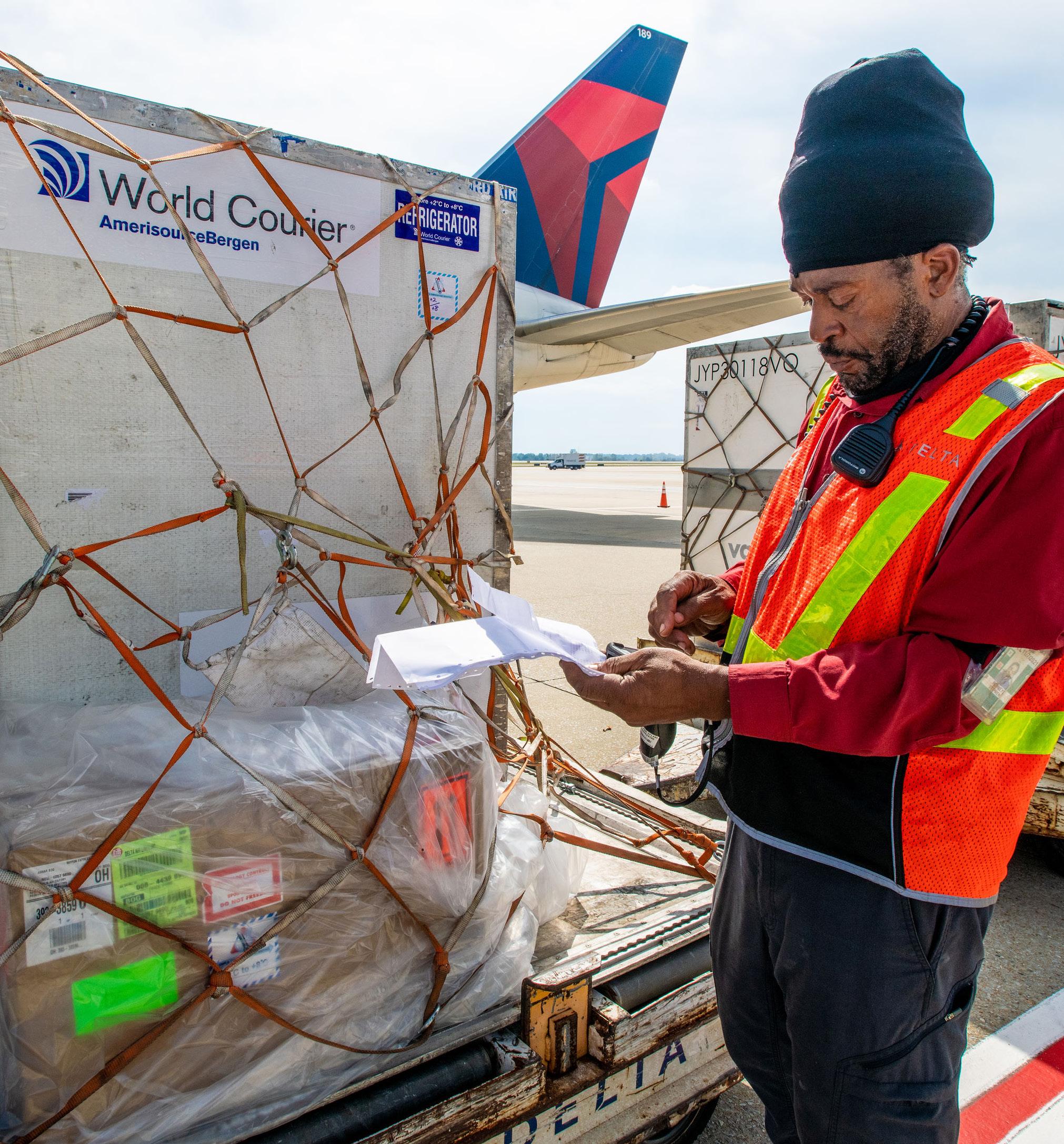
AEROMEXICO CARGO – The first transborder aviation alliance between the US and Mexico, offering customers options across a broad network of flights, along with trucking and several widebody aircraft frequencies.
AIR FRANCE-KLM CARGO – Partnered since 2008, this alliance offers service to six continents, and one-roof warehousing in eight North American cities and 15 European cities helps deliver a more efficient service to customers.
KOREAN AIR CARGO – The airlines’ joint venture offers world-class services across one of the most comprehensive route networks in the Transpacific market.
VIRGIN ATLANTIC CARGO – Partnered since 2013, together the carriers offer one-roof warehousing at six North American locations as well as at the industryleading facility at London-Heathrow airport, featuring advanced technology and automation.
SKYTEAM CARGO – Founded in 2000, SkyTeam Cargo is the world’s only global cargo alliance and offers an extensive network with an aligned product portfolio.
“In addition to corporate-level initiatives, we’ve established employee-led committees in Delta Cargo to promote these same priorities within our own division and foster a greater sense of inclusion. Our employees are also active in various company-wide Business Resource
Groups, which aim to ensure our people think, behave and lead in a way that reflects the values of our customers and the communities we serve,” certifies Walpole.
“All of our projects and investments
are focused on our overarching goal of being a best-in-class belly cargo operator, which includes running the best operation, providing industryleading products and services, and delivering the highest quality overall experience for our customers,” explains Walpole.
The seamless movement of goods and commodities is crucial, and no one recognizes that more than Delta Cargo.
Current demand for time-critical, temperature-sensitive air cargo solutions has been increasing, and the company continues to invest in enhancing its capabilities across its network. This includes a significant investment in an industry-leading cold-chain facility at New York City’s JFK, as well as continuing to expand its footprint by adding new certified stations to its already vast pharmaceutical network, with the most recent additions in Philadelphia (PHL), Chicago (ORD), and Raleigh (RDU). The company is planning more additions to this network in the near future.
Earlier this year, Delta Cargo opened its JFK Cooler – a 16,000 square foot (sqft), state-of-the-art facility – to enable the transport of cold-chain products at a consistent temperature throughout their entire journey. New York is the biggest European gateway for pharmaceutical movements, and the $15 million investment unlocks connectivity to a wide network of markets for coldchain customers by leveraging Delta’s extensive network out of JFK.
“We’re very proud of our new facility, which is the largest of its kind at JFK and features separate temperature zones for different types of medicines and pharmaceutical products, as well as dedicated zones for other perishables such as seafood and fresh produce,” Walpole notes.
In pursuit of its goal of running the best operation in the industry, Delta Cargo recently implemented its new

www.emeoutlookmag.com/work-with-us www.supplychain-outlook.com/subscribe
Hub Control System (HCS) across 11 key hubs. HCS is a new workload steering tool that enables significantly improved operational performance in hub stations where they handle high volumes of cargo transfers. This new system equips warehouse teams with the ability to streamline the transfer process and more efficiently prioritize shipments.
Since its implementation in April of this year, the new system has resulted in a 14 percent improvement in overall transfer connection performance in Delta Cargo’s largest hub in Atlanta, Georgia (ATL), and a 24 percent improvement in average offload recovery time – expediting customer recovery times by nearly two hours.
“Our market continues to change and develop, and it is critical to ensure our services and capabilities are constantly improved in order to best serve our customers’ evolving needs,” explains Walpole.
Looking towards the future, Delta
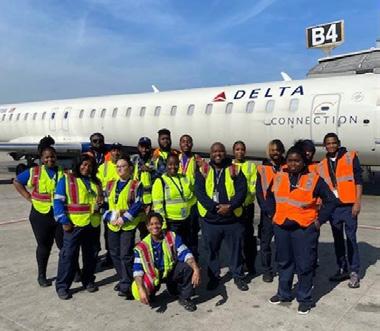

Cargo is continuing to invest in the advancement of technology and process improvements.
This includes the implementation of a new industry-leading operating system which will enable enhanced operating functionality, including streamlined acceptance processes and improved load planning, ultimately providing greater transparency and flexibility for customers.
Delta Cargo also has several other exciting initiatives in the works to expand and improve its product offering, including introducing a new tracking technology that will provide an increased level of visibility to shipments’ locations and status throughout their journey, allowing for better proactive service recovery.
These initiatives help to further advance the company’s goal to consistently provide the highest quality service for each and every customer, no matter their shipping needs.
From transporting life-saving
G2 Service Pins, G2 newsletter and celebrations. G2 is a great place for career advancement and promoting experienced G2 people has made us an award-winning airline business partner. Meeting


pharmaceuticals and organs for transport, to fresh flowers and seasonal produce, Delta Cargo’s strong portfolio of products provides world-class service for every customer’s needs, ultimately making a difference in communities worldwide.

“We are in a unique position where we can make a lasting impact on individuals and communities. Whether it’s through the quick transport of an organ that results in a successful life-saving surgery, or the transport of emergency relief supplies after natural disasters, we are proud to connect the world and make a difference,” concludes Walpole. DELTA
(1-800-352-2746)
www.deltacargo.com

